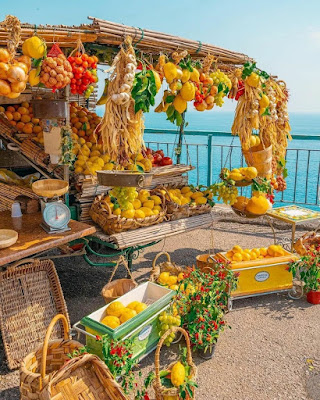Cato the Younger, The Incorruptible Roman
"Study history, study history. In history lies all the secrets of statecraft." - Winston Churchill
John F Kennedy has been quoted as saying, "History is a relentless master. It has no present, only the past rushing into the future. To try to hold fast is to be swept aside."
I have always been intrigued by Roman history, and recently took a shine to read and researching the life of Cato the Younger, who is the great-grandson of Cato the Elder (who learned Greek at 80)
I was so impressed at what I read, that I believe my home country Nigeria needs the Young people to become "A Cato the Younger"
Marcus Porcius Cato Uticensis (95 BC, Rome – April 46 BC, Utica ), commonly known as Cato the Younger (Cato Minor),
He was a politician and statesman in the late Roman republic and a follower of the Stoic philosophy. A noted orator, he is remembered for his stubbornness and tenacity (especially in his lengthy conflict with Julius Caesar), as well as his immunity to bribes, his moral integrity, and his famous distaste for the ubiquitous corruption of the period.
Cato's stubbornness began in his early years. Sarpedon, his tutor, reports a very obedient and questioning child, although slow in being persuaded of things and sometimes very difficult to retrain. A story told by Plutarch tells of Quintus Poppaedius Silo, leader of the Marsi and involved in a highly controversial business in the Roman Forum, who made a visit to his friend Marcus Livius and met the children of the house. In a playful mood, he asked the children's support for his cause. All of them nodded and smiled except Cato, who stared at the guest with the most suspicious looks. Silo demanded an answer from him and, seeing no response, took Cato and hung him by the feet out of the window. Even then, Cato would not say anything.
Plutarch recounts a few other stories as well. One night, as some children were playing a game in a side room of a house during a social event, they were having a mock trial with judges and accusers as well as a defendant. One of the children, supposedly a good-natured and pleasant child, was convicted by the mock accusers and was being carried out of the room when he cried out desperately for Cato. Cato became very angry at the other children and, saying nothing, grabbed the child away from the "guards" and carried him away from the others
Plutarch also tells a story about Cato's peers' immense respect for him, even at a young age, during the Roman ritual military game, called "Troy", in which all aristocratic teenagers participated as a sort of "coming of age" ceremony, involving a mock battle with wooden weapons performed on horseback. While the child of one of Sulla's surrogates was chosen by the adult organizers to lead one of the "teams," the team refused to follow him because of his character, and when they were finally asked whom they would follow, the boys unanimously chose Cato.
Lucius Cornellius Sulla , the Roman dictator, liked to talk with Cato and his brother Caepio, and often requested the child's presence even when the boy openly defied his opinions and policies in public (Sulla's daughter Cornelia Sulla was married to their uncle Marmercus Aemilius Lepidus Livianus).
According to Plutarch, at one point during the height of the civil strife, as respected Roman nobles were being led to execution from Sulla's villa, Cato, aged about 14, asked his tutor why no one had yet killed the dictator. Sarpedon's answer was thus: "They fear him, my child, more than they hate him." Cato replied to this, "Give me a sword, that I might free my country from slavery." After this, Sarpedon was careful not to leave the boy unattended around the capital, seeing how firm he was in his republican beliefs.
After receiving his inheritance, Cato moved from his uncle's house and began to study Stoic philosophy and politics. He began to live in a very modest way, as his great-grandfather Marcus Portius, Cato the Elder had famously done.
Cato subjected himself to violent exercise and learned to endure cold and rain with a minimum of clothes. He ate only what was necessary and drank the cheapest wine on the market. This was entirely for philosophical reasons; his inheritance would have permitted him to live comfortably.
He remained in private life for a long time, rarely seen in public. But when he did appear in the forum, his speeches and rhetorical skills were most admired.
In today's world Cato the younger lifestyle would have been akin to that of a minimalist



Comments
Post a Comment